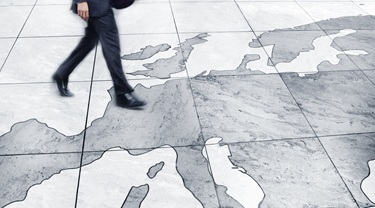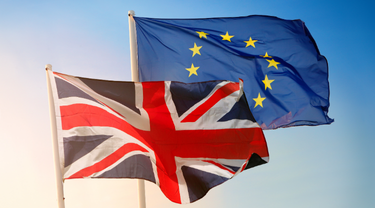
France export outlook: AI, cleantech and agri-food opportunities
Author details
Janet Wilson
Senior international trade writer
In this article:
From the moment explorer Jacques Cartier stepped foot on the Gaspé Peninsula in 1534, France and Canada have shared a unique relationship rooted in language, values and economic stability.
The ties run deep and remain resilient: Both countries are members of the North Atlantic Treaty Organization (NATO), G7, G20, Organisation for Economic Co-operation and Development (OECD), Organization for Security and Co-operation in Europe (OSCE) and Organisation internationale de la Francophonie.
Alongside defence co-operation and partnerships in strategic sectors, including precision agriculture, green technology, renewable energy and AI, France is Canada’s third-largest merchandise export market in the European Union (EU). In 2024, bilateral merchandise trade between our two countries totalled $14.2 billion, with Canadian exports valued at $4.4 billion and imports at $9.8 billion. This strong trade relationship is supported by the Canada-European Union Comprehensive Economic and Trade Agreement (CETA), which eliminates tariffs on most goods, enhances market access and streamlines regulatory co-operation—making it easier for Canadian exporters to enter and grow in the French market.
Although France, like other nations, is grappling with shifting trade alliances, it’s shielded from the worst effects, says Sasan Fouladirad, economist and country risk analyst with EDC’s Economic and Political Intelligence Centre.
“France is less exposed to U.S. tariffs and global trade tensions than other major European economies, making it more resilient than its peers, like Germany and Italy, which are more reliant on manufacturing and exports,” Fouladirad says, adding, “Easing trade tensions could lift French exports, particularly in high-value sectors such as aerospace, chemicals and pharmaceuticals.”
France’s green and digital transition
Like the rest of the EU, France is rapidly transitioning from fossil fuels to sustainable energy and cleantech. While many countries are decoupling from Russian energy, France has invested for years in nuclear energy, positioning it as a leader in low-carbon power.
Under the REPowerEU initiative, industrial producers in Europe must source at least 40% renewable power in their supply mix—creating opportunities for Canadian cleantech exporters. If successful, this will position Europe as a world leader in decarbonization and energy transition.
France’s economic trade policy, reaffirmed in the 2024 Canada–France joint statement, emphasizes sustainable and inclusive growth, resilient supply chains and a transparent, rules-based multilateral trade system—all of which align closely with Canada’s trade priorities.
You should also check out
-
GuideJanuary 20, 2026

2026 Europe market intelligence: A guide for Canadian exporters
Learn about key sectors, market trends, and how EDC supports Canadian businesses expanding to Europe.
Artificial intelligence and digital innovation
France’s focus on green industrial transformation, digital innovation and critical mineral security presents new opportunities for Canadian exporters in sectors such as agri-food, clean energy, artificial intelligence (AI) and advanced materials. Joint initiatives in nuclear energy, AI governance and sustainable mining further underscore Canada’s strategic role in France’s economic transition.
France’s famed culinary tradition and long-standing commitment to nuclear energy may appear to be non-starters for Canadian exporters, but in some areas, they represent real opportunity, alongside growth areas such as AI, cybersecurity and fintech.
France’s drive for digital sovereignty and cybersecurity infrastructure creates space for Canadian companies in AI-driven energy optimization and carbon capture technologies. New opportunities may arise through France’s national strategy for AI, part of the bigger France 2030 Investments for the future program.
The French government continues to invest in digital technology sectors where Canadian innovation is well-established, including digital banking and investment. Toronto-based Wealthsimple, for instance, is already expanding its footprint in France.
To support AI’s energy demands, France has more than 30 operational, low-carbon AI sites. For Canadian AI companies—especially those in Quebec with French-language models—this presents strong niche opportunities in manufacturing, energy management and end-user applications.
Cleantech and energy transition
Cleantech remains one of the most promising export sectors. France’s $86.51-billion France Nation Verte plan is accelerating the transition to a low-carbon economy, with significant funding directed toward green buildings, clean transport, circular economy initiatives and energy innovation. Canadian firms in wind, hydrogen and carbon capture are well-placed to contribute.
France’s plan to build six new nuclear reactors in 2027 could present export opportunities to companies working on small modular reactors, reactor components and nuclear waste management.
“France is a nuclear powerhouse and, while not adversarial, there’s a commercial competition between France and Canada on large nuclear reactors. Canadian companies that have a clear and distinct value proposition will be able to penetrate the French market,” notes Shariq Akhlaq, EDC’s national lead for energy transition.
Other top export opportunities to France include aerospace, creative industries, cleantech, information and communication technology and life sciences.
Agri-food and agri-tech
France’s agri-food sector is growing rapidly, especially in demand for potash and agri-tech solutions powered by AI and biosensors to predict crop yields and optimize water use. “The French obviously take food very seriously,” says Ime Ekong, an EDC director of business development in Europe. “Canada is one of the markets where our technology provides more control around yields while using less water. That’s critical—not only for France, but globally.”
You should also check out
-
ToolDecember 03, 2025

Country Risk Quarterly 2025: Navigating export risks in global markets
EDC interactive tool offers economic insights on Canada’s Top 75 trading partners.
Regulatory and cultural considerations
The General Data Protection Regulation (GDPR) significantly affects Canadian AI companies exporting to France, particularly those managing personal data. GDPR applies extraterritorially, meaning compliance is required even for firms operating solely from Canada if EU personal data is processed.
French business culture values long-term relationships and professionalism. Cold calls rarely work—personal introductions, trade shows and local partners are key.
Depending on the sector, exporters may need to work through agents or distributors, or consider setting up a local presence. For digital or SaaS (software as a service) products, a localized direct-to-market approach may be effective.
Sector-specific barriers
France enforces EU regulations on product safety, labelling, sustainability and digital services. Exporters must also be aware of France-specific interpretations, which can be stricter than other EU countries. Consumer goods face high retail markups. Exporters should factor in distributor and retailer margins when setting prices.
Entering France requires cultural awareness and local regulatory understanding. French consumers are brand-conscious and quality-driven, and businesses expect tailored approaches. Exporters should research regional buying habits, competitive positioning and pricing expectations.
- Short-term risk rating: Low
- Top Canadian exports (2024): Transportation equipment, energy products, metals and minerals, machinery, food manufacturing and crops, and chemical products.
- Canadian exports total value (2024): $4.4 billion
- International trade agreement with Canada: Canada-European Union Comprehensive Economic and Trade Agreement (CETA)
- GDP (2025 nominal): US$3.1 trillion
EDC is part of the Government of Canada’s trade ecosystem of experts available to help you save time, learn more about your target markets and identify the capital you need to grow. Led by the Trade Commissioner Service (TCS), this network of solution-oriented departments and Crown corporations can solve export problems and offer new perspectives, so exporters can confidently expand and succeed, at home and abroad.
You can also rely on EDC’s team of world-class economists and analysts to produce timely economic reports, including the Global Economic Outlook, Country Risk Quarterly and market profiles. Through our TradeInsights portal, you’ll find a sizable library of resources, including guides, articles, webinars and podcasts. Also, check out our cleantech insights and resources. To contact an EDC export advisor, visit our Export Help Hub and sign up for MyEDC account.
EDC guarantees and trade credit insurance
Do you need working capital to manage existing contracts, or to adapt and evolve your business? EDC guarantees let you access more working capital from your financial institution. By taking on some of the risk related to your business growth, we enable your financial institution to lend you more, or release assets that would otherwise be held as collateral.
Are you looking to protect against supply chain disruptions and the risk of non-payment of goods shipped to the U.S. or elsewhere? EDC trade credit insurance protects against losses in the event of non-payment from your buyer.
As businesses across Canada feel the impact of market uncertainty, we’re increasing our support to Canadian exporters and investors as you adjust and adapt to these new market realities. The EDC Trade Impact Program will facilitate an additional $5 billion over two years in support for eligible companies across a range of products to help you navigate economic challenges.
Looking to expand your business into Europe? Don’t miss Part 1 of our series, where we explore the opportunities and challenges of doing business in Germany.
Continue series

Part 3 of 3 in series
Exporting to the United Kingdom: Opportunities, challenges and support
Continue seriesPart 1 of 3 in series
Why Germany is a strategic export market for Canadian businesses














